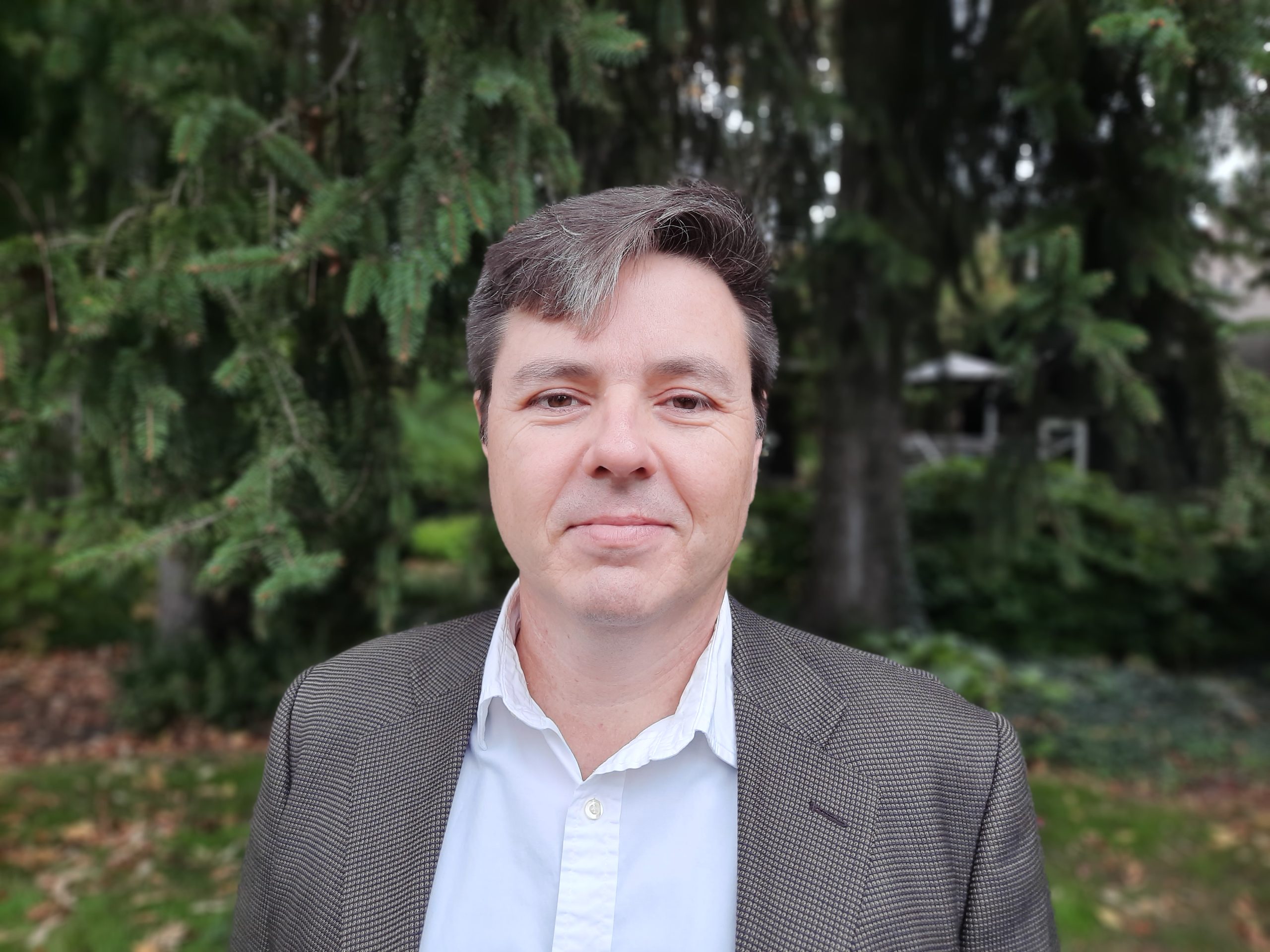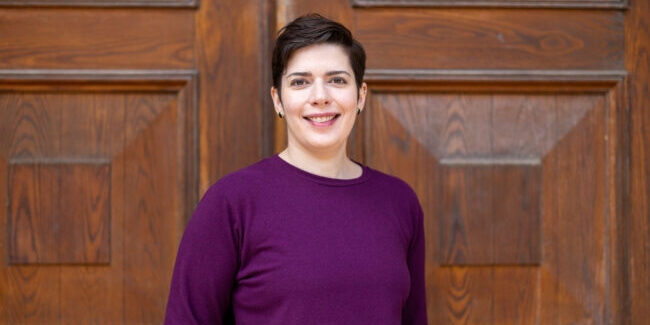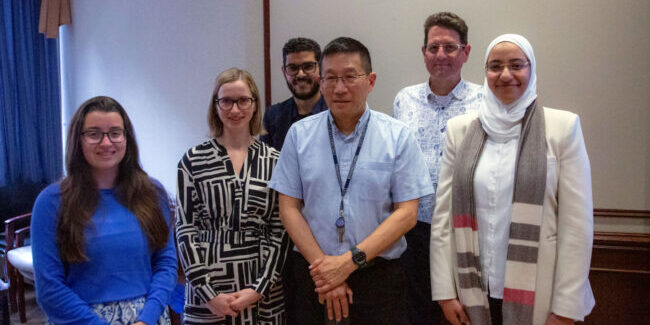Professor Bruno Korst recently joined the professoriate in The Edward S. Rogers Sr. Department of Electrical & Computer Engineering (ECE).
Korst has been a long-time member of ECE’s technical staff, most recently as the Director of Teaching Labs and as a sessional instructor.
ECE’s Jessica MacInnis reached out to Korst to learn about his approach to teaching, how he hopes to build bridges between industry and students and why taking up music lessons during the pandemic has brought him full circle in his engineering journey.
Could you explain your approach to teaching?
It’s important to present the theory to students in a way that enables them to easily make connections to its application. Many engineers find that when we put our designs into practice there are often surprises that our textbooks didn’t prepare us for — that’s what makes engineering so exciting! Bringing the theory as close as we can to the practice will help students not only in the lab but will translate into success in their roles in industry.
In short, my goal is to provide information as a classroom instructor and then, as an engineer, encourage, guide and support students’ curiosity towards the tangible, concrete goal of a completed project. Even the smallest completed project helps students get one step closer on the path towards becoming an engineer.
Tell us about your background in engineering.
My fascination with sounds drew me to engineering. I wanted to understand how sounds were recorded, generated, modified and what made them so attractive to the listener. Instead of becoming a musician, I became an electrical engineer.
My first engineering job was at a company that manufactured sound systems for musicians, audiophiles, businesses and others. From there I went to study digital signal processing, and eventually worked on a team that designed and tested the acoustics of telephone systems. With these experiences in industry, I learned not only different technical skills, but also the language of the end users, the mechanical engineers, the acousticians, the shop-floor technicians and the other electrical engineers in their own specialties.
In later years, I pursued the instruction of electrical engineering, which led me here to ECE. I have been heavily involved with laboratory instruction — experiment design, delivery, pedagogy, training — for almost two decades, and look forward to bringing my experiences in academia and in industry to my teaching.
Why did you choose ECE at U of T?
In the incredibly exciting and dynamic disciplines of electrical and computer engineering, ECE at U of T is recognized as one of the top departments in the world.
The department’s stellar reputation is because of our people. We have a convergence of highly qualified, diverse professors, students and staff. Combined with the size and breadth of the department, it means that there are unlimited opportunities for our students.
I think curiosity drives many engineers and future engineers. If you are an ECE student with an idea, you will find someone here who knows about the topic and how to translate your idea to practice. You will find the support you need to work it through.
What do you hope to accomplish as an educator in the next few years?
Simply put, I hope to facilitate a closer connection between industry and the engineer of tomorrow.
In terms of the classroom, I’m keen to teach courses that have a practical component, and to reinvigorate what I am teaching with the practices and tools found in industry. Industry evolves and adapts very rapidly, so we should strive to follow that model when teaching future engineers.
What is a fun fact about yourself that you’d like to share?
I’ve done my fair share of things to keep my parents guessing what was next. This last year, I gave my kids the same treatment. They’re learning the piano and trumpet, and since I never learned music formally, I decided to pick up the euphonium. We learn the instrument together, with occasional shots at the cavaquinho and the cajon. The twist is that our very patient instructors live in South Africa and in Brazil.




